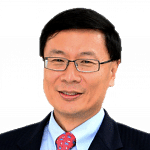How old is too old, and when do you call it quits from work?
It might not be all downhill after your first 20 years of work. The timing depends on your profession.

It’s astonishing to think that two men who have announced they will campaign for the United States presidency in 2024 have a collective age of 156. The incumbent, President Joe Biden, is 80, and second-time seeker Donald Trump is 76.
They must think they have the vim and smarts to lead a superpower and manage the world’s largest economy, even though they are well past most people’s retirement age. How up to it would someone really be at that age?
This is especially so in the light of a New York Times opinion piece on ageing and the ability to do one’s work. Although the piece was about doctors (“How would you feel about a 100-year-old doctor?” by Sandeep Jauhar), it cited a study in the medical journal Jama Neurology which found that one in five adults over 65 may be living with cognitive impairment out of proportion to the normal age-related changes.
Noting that there is no mandatory retirement age for doctors in the US, the writer (who is a medical doctor) suggested periodic competency examinations for physicians aged 65 onwards.
In Singapore, there is no compulsory retirement age for doctors in the private sector, although the Singapore Medical Council requires all practising physicians to chalk up sufficient hours of medical education activities to renew their certificate of practice every two years, and to police themselves with regard to their own physical and mental capacities to practise and to either self-report or report on a colleague to the licensing body.
But knowing when to call it a day before one’s decline leads to a humiliating exit is not an easy matter. As Dwight D. Eisenhower, the former supreme commander of the Allied forces who subsequently served two full terms as the 34th president of the United States, once commented: “We all know that when advancing years and diminishing energy begin to take their toll, the last one that ever appreciates such a situation is the victim himself”.
Fluid and crystallised intelligence
We have this blind spot when it comes to our own capability: Research has shown that in most fields of work, many people are unaware that their decline starts earlier than they think.
The general trend is that success and productivity increase through the first 20 years after the start of a career, and thereafter, starts to slide. But the specific timing of peak and decline vary, depending on the profession.
The theory of fluid and crystallised intelligence might shed some light. Fluid intelligence is the ability to reason, analyse and solve novel problems in unique and novel situations. It is highest relatively early in adulthood and starts to decline in one’s 40s.
Studies of major inventors and Nobel Prize winners found that most were in their late 30s when they produced their most significant work. The likelihood of a major discovery increases rapidly through their 20s and 30s, and then declines steadily in their 40s, 50s and 60s. (There are, of course, outliers: Thomas Edison continued to file patents well into his 80s.).
Things are even more stark in the tech sector. Silicon Valley has promulgated a culture which holds that bold ideas are the providence of the young. Mr Mark Zuckerberg (who was 19 when he created Facebook) once stated “Young people are just smarter”, and venture capitalist Vinod Khosla has flatly declared that “people over 45 basically die in terms of new ideas”.
Crystallised intelligence, in contrast, is the ability to use knowledge gained from past learning and experience. And because it relies on building on years of an accumulating body of expertise and knowledge, it tends to increase through one’s 40s, and does not diminish until very late in life.
Careers that rely primarily on fluid intelligence tend to peak early, while those that use more crystallised intelligence peak later.
Scholarly academics like historians – who rely on a crystallised stockpile of knowledge – don’t reach this milestone until about the age of 60. Doctors would probably fall into this second category where the cumulative years of practice, continuing medical education, hard-won experience and lessons learnt would (hopefully) lead to clinical wisdom.
But we can’t deny or stop the depredation of progressive ageing, which brings mental decline, loss of sensory acuity, physical mobility and stamina. So, there is still that legitimate concern of declining performance after a certain age, though what that number should be is controversial.
Sadly and rather regretfully, some of us want to hang on, even after we have exceeded our shelf life. Part of it might be ego and the desire for money, recognition and status – though with passing time, such external rewards are usually not as numerous or so readily attained as they were when we were younger and more driven.
I think by far the greatest fear is of becoming irrelevant and insignificant, and fading into invisibility.
This is particularly likely in a world that places decreasing value on authority based on years of knowledge and experience. Times have changed: Older workers (with higher salaries) are commonly replaced with young people who may have less experience but cost less to hire.
At the same time, rapid technological innovation often renders an older person’s skill set obsolete. The Internet, with its increasingly powerful search engines, has seen to that. Why ask an old person a question when you can find the answer with a few taps of the keyboard?
Is there no place for the old among the digital natives of the tech world? Mr Chip Conley, an American hotelier and entrepreneur, thinks otherwise. He gave an upbeat personal account in the Harvard Business Review of how he became a “modern elder” at the age of 52 when he became the in-house mentor for the chief executive of Airbnb who was 21 years his junior. “Many young people can read the face of their iPhone better than the face of the person sitting next to them,” he wrote. As an “emo-savvy” older person, he could offer emotional intelligence in return for the digital intelligence of the “tech-savvy” young.
Life cycles and finding meaning
Mr Conley was putting into practice theories of Dr Erik Erikson, a development psychologist who said there are specific psychological conflicts that take place through eight sequential stages of a person’s life cycle, including from birth to infancy, childhood into adulthood, and middle age into, finally, old age.
Each stage presents a struggle between two opposing states which, if resolved, sees us become better prepared for challenges in the next stage. Failure, on the other hand, leads to difficulty navigating our future and perturbs our sense of self and leaves us feeling inadequate.
In the seventh stage, between 40 and 65 years of age, Dr Erikson believed this midlife station presents two possibilities which he called “generativity versus stagnation”.
Generativity is “primarily the concern for establishing and guiding the next generation”, and we should work towards passing on knowledge and skills while obtaining a measure of satisfaction in the assurance of being useful in life, of having accomplished something and contributing to society. Failure of generativity can lead to profound personal stagnation and discontent.
And in the final eighth stage, we have the chance to review a lifetime of beliefs, to come to terms with choices made and opportunities lost, and arrive at a comprehensive sense of wisdom. It is the stage of life that helps us grasp who we are and what our life has meant.
Whether we accept our own diminishing role and inevitable exit with grace and equanimity probably depends on what we were like before we become old.
Narcissistic, self-centred, self-serving people are likely to find time’s fading drumbeat less tolerable than those who seek meaning in life by helping others or devoting themselves to causes for reasons beyond themselves. And they might be fortunate to be blessed with the old age described by neurologist and writer Oliver Sacks: “A time of leisure and freedom, freed from the factitious urgencies of earlier days, free to explore whatever I wish, and to bind the thoughts and feelings of a lifetime together.”
- Professor Chong Siow Ann is a senior consultant psychiatrist at the Institute of Mental Health.
Join ST's Telegram channel and get the latest breaking news delivered to you.










No comments:
Post a Comment